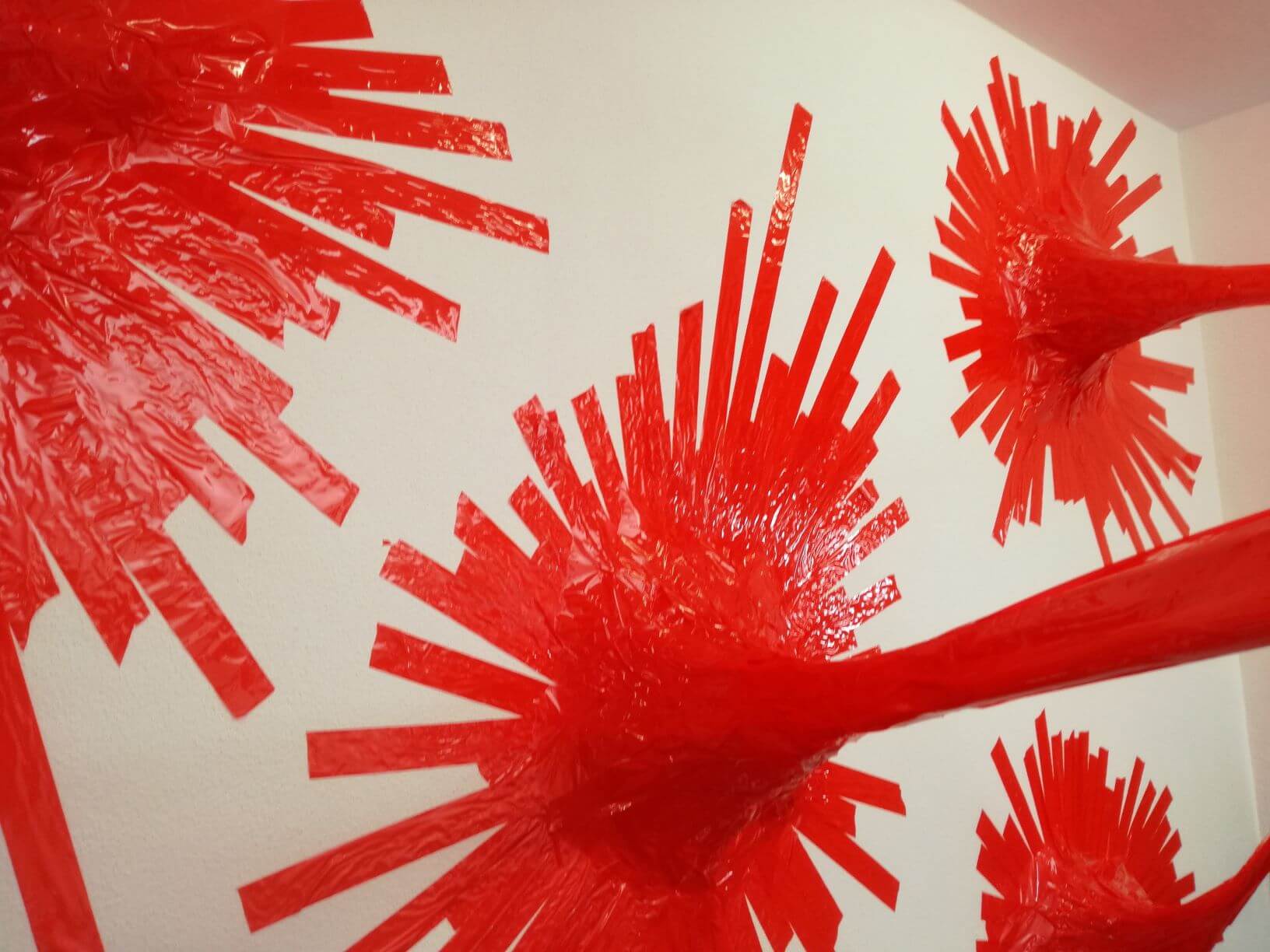Synapsis
In the modern world, we seem to be lost in translation. On the one hand, forms of mass media and networking have enabled people to connect in ways that would seem impossible just a decade ago. On the other hand, we seem to have lost the ability to connect directly, on a personal level. We seem to have lost our sense of identity. This work refers to connectivity, both between human beings and between ourselves and our experiences, hopes, dreams and values. It uses the common material of card-board and gives it a new meaning and context.
This work deals mainly with the fragility of that element, which gives stability and structure to the organic body. The material being used – plaster – points out as well to the notion of fragility. The circular shape may refer to the transition from a material to an immaterial form, and to the contrast and the connection between body and soul. There is reference to the spinal cord, which is required to keep the whole structure intact. It also protects our central nerve system. This work, therefore, raises the question of what makes us into a unity, what brings us together and how do we keep this complex unity intact? The spinal cord can also be seen as a metaphor to our moral standing and this may be the connecting point between the human body and society as a whole. How do we keep our moral standing and our integrity? How do we address the moral challenges we are confronted with? Will we succeed in holding the different threads of our society together despite the differences? These questions receive a strong emphasis in current days when much of our moral standing and our liberal values come under attack. Each decision we take, no matter how small, can have far-reaching effects on our lives, on the structure and the direction that we as a society take.

